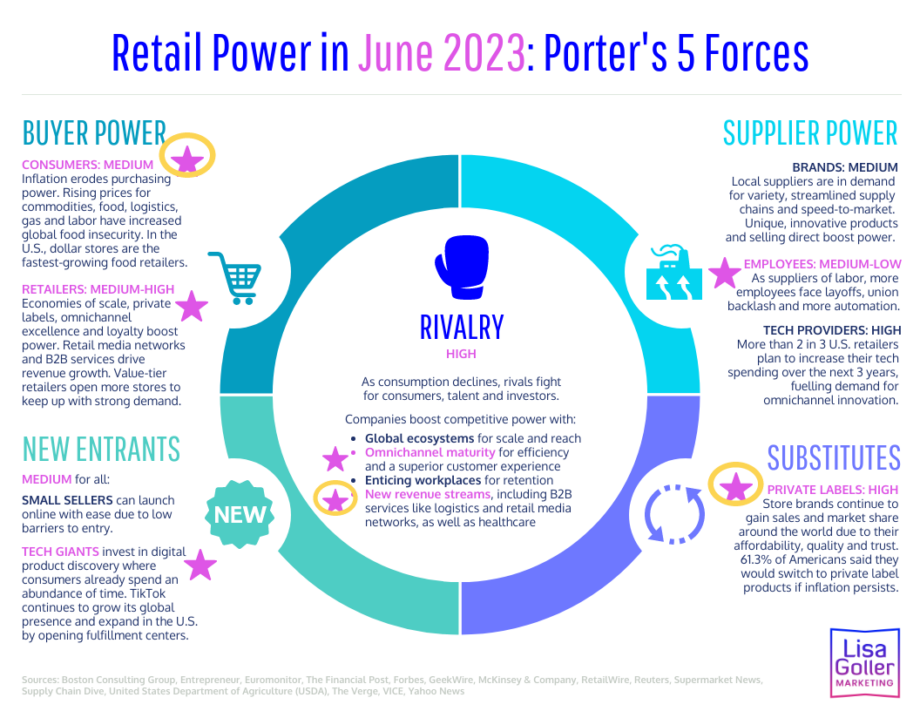Who has retail power right now?
This mid-year review of Porter’s 5 Forces shows retail stakeholders have retained their respective levels of power since we first looked at this framework in January.
Stakeholder groups with purple stars – especially those circled in yellow – have made lots of headlines this year.
Here’s a brief overview that explains why.
🛍 BUYER POWER
Consumers: MEDIUM
Higher prices have led ~80% of consumers to cut spending on non-essential goods,and2 in 3 spend less on essentials, like groceries, utilities and gas. [CNBC]
💪 SUPPLIER POWER
Employees (as suppliers of productivity): MEDIUM-LOW
AI and robotics threaten jobs, and more companies expect workers to return to the office. [Retail Dive, The Washington Post]
🆕 NEW ENTRANTS
Tech giants: MEDIUM
TikTok focuses on global growth and Pintrest partners with Amazon for shoppable commerce. [Bloomberg, RetailWire]
🔄 SUBSTITUTES
🏷 Private label: HIGH
22% of European consumers plan to buy more private labels. [Forbes]
🏝 NEW! Non-retail spending: MEDIUM-HIGH
Entertainment and travel compete for consumers’ wallets. [NPR]
🥊 RIVALRY
📱 Omnichannel maturity: HIGH
Stores add tech, including retail media like Kroger’s digital screens and River Island’s use of RFID in fitting rooms [Retail TouchPoints, ZD Net]
💰 New revenue streams: HIGH
B2B services in tech, logistics and marketing drive growth [Retail Dive, RetailWire]
Who do you think has the most retail power right now?
Coming soon: We’ll look at the top retail trends that have made headlines in Q2 2023.🏝





